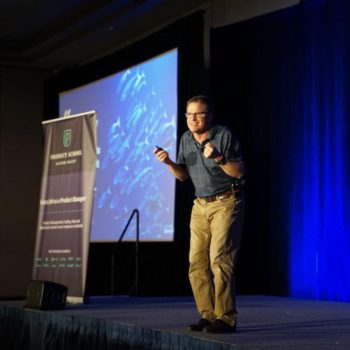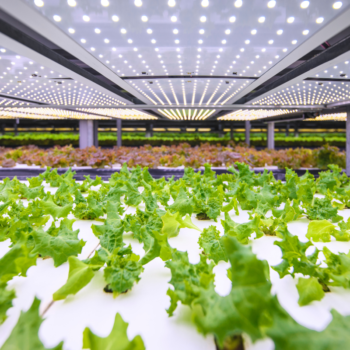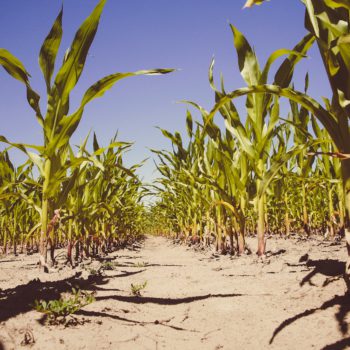|
|
What is Ocean Bound Plastic?
Ocean-bound plastic (OBP) is a term denoting plastic waste discovered within a proximity of 50 kilometers to coastlines or waterways, representing a critical environmental concern. These plastics stand at the precipice of ocean pollution, awaiting fate’s hand unless managed responsibly and proactively.
Sources of Ocean-Bound Plastic
- Coastal Littering: One of the primary sources of OBP is coastal littering, where plastic materials discarded irresponsibly on beaches or near water bodies find their way into the ocean. This issue highlights the importance of promoting responsible waste disposal.
- River Transport: Rivers serve as natural conduits, carrying plastic waste downstream into oceans. For instance, the Yangtze River in China is known to transport significant volumes of plastic debris into the East China Sea.
- Stormwater Runoff: Rainwater washes plastic litter from streets and urban areas into stormwater drains, ultimately leading to the ocean. Cities like Los Angeles have witnessed plastic pollution in their coastal waters due to stormwater runoff.
The Impact of Ocean-Bound Plastic
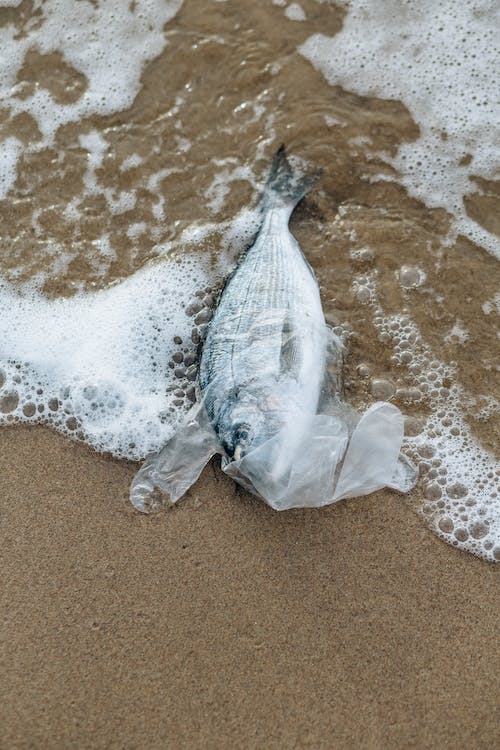
- Marine Life: Ocean-bound plastic poses a grave threat to marine life. Sea creatures often mistake plastic debris for food, leading to ingestion, which can be fatal. This issue has led to disturbing instances of plastic-filled stomachs in marine animals.
- Microplastics: Over time, plastic materials break into microplastics, tiny particles less than 5mm in size. These microplastics further infiltrate marine ecosystems, harming wildlife and the environment.
- Ecosystem Disruption: Plastic waste in ocean ecosystems disrupts the balance of marine habitats, affecting the overall health of coral reefs, oceanic currents, and the creatures that rely on these environments.
The Global Plastic Problem: A Looming Crisis
The global plastic predicament has evolved into an alarming concern, propelled by the widespread utilization of plastic materials and the inadequate handling of plastic waste. This dilemma underscores the dire need for comprehensive action and responsible stewardship of our planet’s resources. Startling statistics and authoritative sources vividly illustrate the gravity of this issue.
Global Plastic Influx: Current estimates indicate an astonishing 8 million tons of plastic inundate our oceans annually. This incessant influx of plastic debris wreaks havoc on marine ecosystems, bringing about a dire ecological crisis that resonates worldwide. The sheer volume of plastic pollution underscores the urgent necessity for transformative solutions that transcend borders and industries.
Coastal Origins: Much plastic flooding our oceans stems from coastal areas. Here, poor management of plastic waste in landfills and careless littering contribute to ocean contamination. Rivers and waterways act as pathways, carrying plastic waste from coasts into the ocean. Regions like Southeast Asia have notably played a significant role in ocean-bound plastic pollution, emphasizing the need for local solutions.
Authoritative Sources: Credible sources, such as reports from the United Nations Environment Programme (UNEP) and the World Economic Forum (WEF), confirm the dire state of global plastic pollution. These sources stress the urgency of addressing plastic waste as a critical issue, emphasizing the need for worldwide collaboration, strict regulations, and innovative technologies to combat this widespread crisis.
Addressing the Challenge of Ocean-Bound Plastic
Efforts to combat OBP include cleanup initiatives, river management strategies, and educational campaigns. Organizations like The Ocean Cleanup, led by Boyan Slat, develop innovative technologies to remove plastic from oceans. Moreover, plastic certification programs, such as Oceanworks, help ensure products are crafted from recycled ocean-bound plastic, reducing its entry into marine ecosystems.
Combating Ocean Pollution
Initiatives and organizations are actively addressing ocean pollution. They aim to increase recycling and reduce plastic consumption. Sustainable brands now use recycled ocean-bound plastic for packaging, promoting a circular economy. Organizations like Plastic Bank and Zero Plastic Oceans work to collect and recycle plastic waste before it reaches the ocean, certifying materials made from recycled ocean-bound plastic.
Innovative Solutions
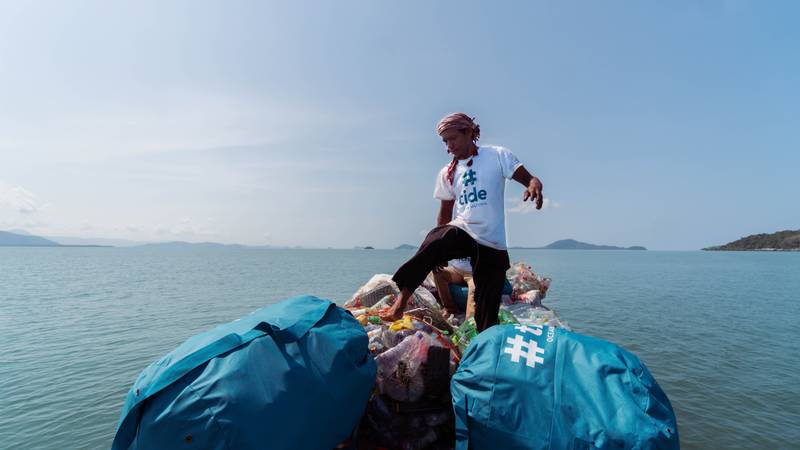
Image Credit: Tide Ocean Material
Tide Ocean Material®, a certified ocean-bound plastic, offers a sustainable solution. It’s a material crafted from recycled ocean-bound plastic, suitable for various products, from clothing to packaging. Improved waste management systems, recycling facilities, and waste-to-energy technologies are vital for handling plastic waste and reducing its impact.
Frequently Asked Questions
Ocean Bound Plastic (OBP) refers to plastic waste at risk of entering the ocean but has not yet reached it. It includes plastic materials within 50km of a coastline or waterway and may eventually end up in the ocean if not properly managed.
Ocean Bound Plastic is important because it helps prevent ocean pollution. By reducing and recycling ocean-bound plastic, we can minimize the amount of plastic waste that enters our waterways and harms marine life.
Ocean Bound Plastic is defined as plastic waste that is within 50km from a coastline or waterway and is at risk of entering the ocean if not properly managed. It includes plastic materials that may be destined for the ocean but have not yet reached it.
Ocean Bound Plastic refers to plastic waste that is at risk of entering the ocean but has not yet reached it, while ocean plastic refers to plastic materials that are already in the ocean. Ocean Bound Plastic focuses on preventing plastic waste from reaching the ocean in the first place.
PCR stands for Post-Consumer Recycled. In the context of Ocean Bound Plastic, PCR refers to plastic materials that have been recycled from post-consumer waste, such as plastic packaging or discarded plastic products. Using PCR materials helps reduce the demand for virgin plastic.
Reducing and recycling Ocean Bound Plastic helps minimize the amount of plastic waste that enters the ocean. By properly managing and recycling plastic materials that are at risk of polluting our waters, we can reduce the environmental impact of plastic pollution and protect marine ecosystems.
Jenna Jambeck is an environmental engineer and researcher who co-authored a study on plastic waste entering the ocean. Her research brought attention to the issue of plastic pollution and the importance of managing and reducing Ocean Bound Plastic.
It is estimated that millions of metric tons of plastic waste are generated worldwide each year. This includes both properly managed and mismanaged waste, with a significant amount at risk of entering the ocean.
Ocean-bound plastic refers to plastic waste at risk of entering the ocean but has not yet reached it. Mismanaged plastic waste refers to plastic materials that are not properly managed and may end up in the ocean due to inadequate waste management systems or practices.
Recycled ocean plastic is made by collecting and processing plastic waste removed from the ocean or at risk of entering it. The plastic materials are then cleaned, sorted, and transformed into new products through recycling processes, reducing the demand for virgin plastic.
The exact amount of Ocean Bound Plastic in the world is difficult to determine. However, it is estimated that a significant amount of plastic waste, potentially millions of metric tons, that is bound for the ocean if not properly managed.
Conclusion and Call to Action
In conclusion, tackling the menacing challenge of ocean-bound plastic necessitates a united front on a global scale. To combat this pervasive threat effectively, we must institute robust waste management systems and advocate for the widespread adoption of recycled ocean-bound plastic within our supply chains.
The imperative of reducing plastic consumption, amplifying recycling endeavours, and wholeheartedly endorsing sustainable brands cannot be overstated. Through these concerted actions, we can hope to cleanse our oceans, ensuring a pristine and sustainable marine ecosystem for the welfare of present and future generations. The time for action is now, and the responsibility lies with us all.



